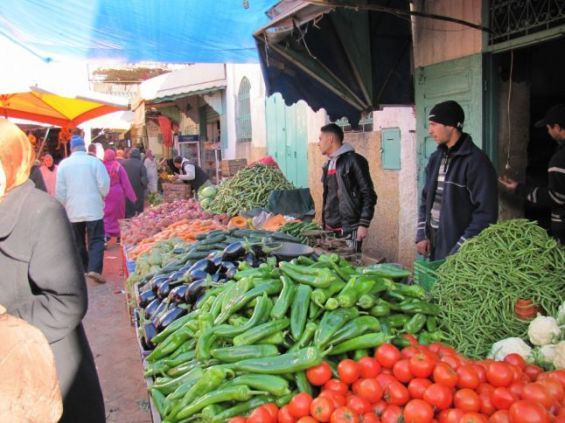For Penn State University geography researcher Bronwen Powell, healthy traditional diets are declining in Morocco, leaving room for new food trends.
The researcher is currently in the Kingdom with a team on the ground, studying the reasons why food trends are changing, wrote Penn State, Thursday, on its website.
Visiting farmer markets in several regions of the Kingdom, Powell indicates that «processed wheat flour is increasingly being used instead of whole wheat or barley flour to make bread, meat and other animal sources of protein are replacing legumes, and people are more and more favoring imported vegetables instead of traditional (wild) vegetables».
In fact, the researcher believes that demand for traditional food, including fruits, vegetables, whole grains and legumes has declined in the recent years because it lost its cultural importance. For that she argues that «many of the traditional foods being lost from Moroccan diets, such as whole grains, especially barley, and fruits and vegetables, are also those associated with lowering the risk of obesity and Type 2 diabetes».
 Penn State geography researcher Bronwen Powell is studying food markets in Morocco to see how changing food trends could be impacting public health./Ph. Penn State
Penn State geography researcher Bronwen Powell is studying food markets in Morocco to see how changing food trends could be impacting public health./Ph. Penn State
Indeed, an International Food Policy Research Institute survey says that 35 % of Moroccan women in Morocco have anemia, 57 % of all Moroccans are overweight, 22% are obese, and Type 2 diabetes is on the rise, says the same source.
Policies and decisions in food
Backed by a team from the Cadi Ayyad University, Powell found out that policies and decisions related to the food and agricultural industry can affect the way people see food in Morocco. «Decision makers disagree about the relative benefits of on-farm production of diverse crops of foods, or if farmers should specialize and become more market integrated», said Powell.
For her, «specializing in specific foods that are in high demand might provide more income for farmers, allowing them to purchase additional healthy foods to supplement gaps in their diets. But the markets may not always have the types of supplemental food farmers are looking for».
According to the researcher, nutritionally important foods should be produced locally so that when people go to the market, they can opt for healthy choices. However, Powell points out that «heavy marketing for unhealthy foods», can push people to purchase unhealthy options.
Powell’s research is still underway and she hopes that she can have «better advice for agricultural extension agents and departments or ministries of agriculture and health, to inform them about how to best ensure that markets have a diversity of healthy foods available to people».





 chargement...
chargement...













